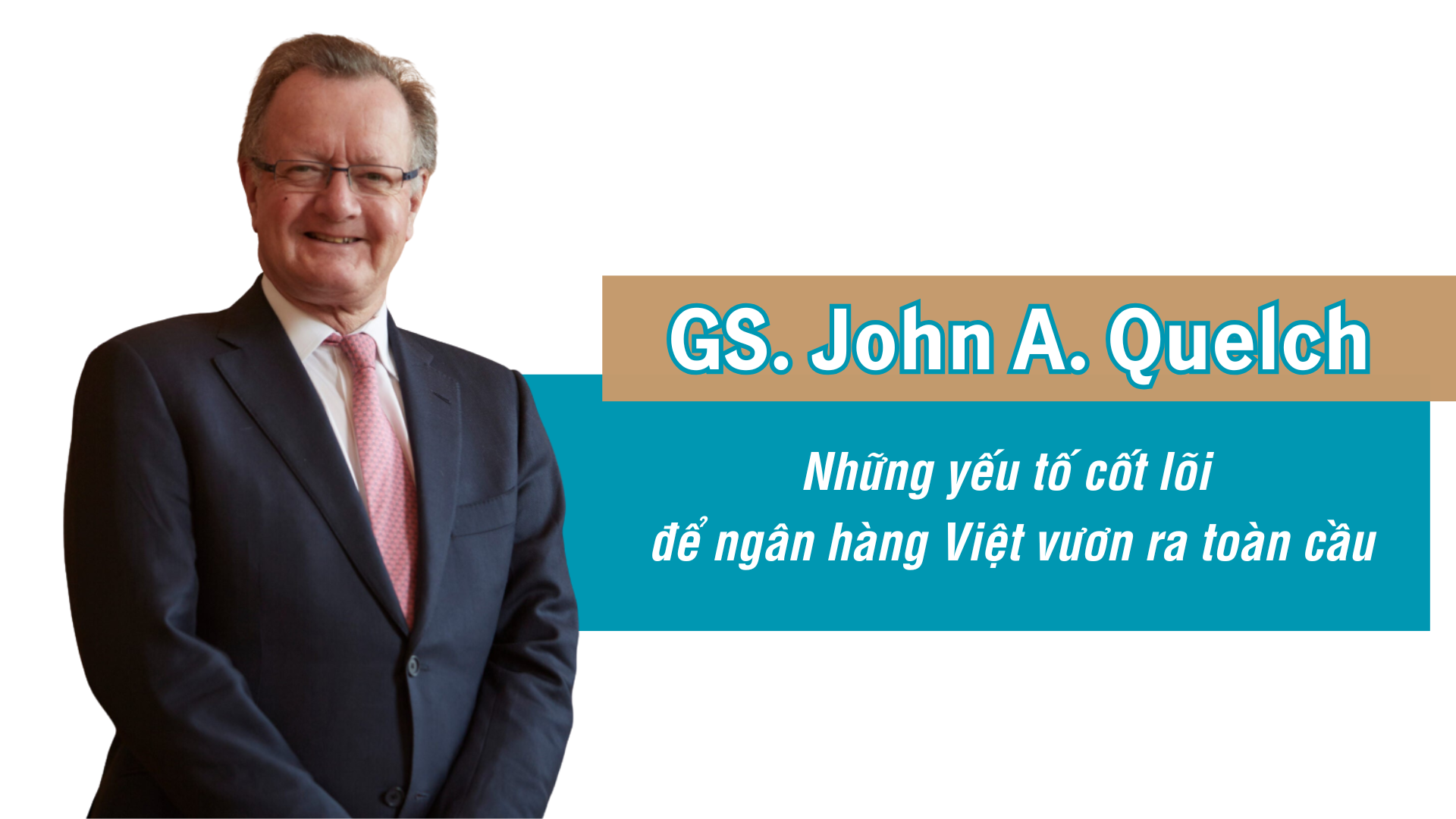 |
In the era of globalization, brand is not only an identification factor but also a key strategic asset of each organization, especially in the banking sector - where trust and reputation determine existence and development. For Vietnam, the goal of bringing some commercial banks into the Top 100 in Asia, and even listing internationally, is an ambitious step. To better understand the journey of building a world- class banking brand, Banking Times had an exclusive interview with Professor John Anthony Quelch ( JQ) - the world's leading expert in the field of global branding and marketing strategy, who has held leadership roles at prestigious universities such as Vice President of Harvard Business School, London Business School, China-Europe International Business School (CEIBS), Miami Herbert Business School..., and is currently Vice President of Duke Kunshan University (China). You have had the opportunity to visit Vietnam many times. What impresses you about the country and people of Vietnam, as well as the spirit of innovation and the development potential of the Vietnamese finance and banking sector? Vietnam has gone through many ups and downs in its history. This has only served to highlight the enduring kindness and exemplary hospitality of the Vietnamese people - something that has impressed me so much. Banking is traditionally a conservative and cautious industry, and that makes perfect sense. However, the development of Fintech and AI is opening up opportunities for Vietnamese entrepreneurs to bring financial services to more people, while providing financial services in a better, faster, and lower cost way. What are the key factors that help Vietnamese banking brands reach out to the global market, Professor? First, you need to answer an important question: “What do you bring to the global market? Why does the world need you?” For a brand to be successful internationally, it must solve a real problem, or provide a solution that is better, cheaper or faster than its global competitors. It is this difference – a valuable difference – that helps a bank stand out. So the first strategy is often to focus on the overseas Vietnamese community – in other words, Vietnamese businesses and people living in other countries. The second strategy is to focus on trade relationships – where exports go and imports come from – and ensure that Vietnamese banks play a full role in facilitating those transactions. A third strategy to consider is to focus specifically on countries in the surrounding region such as the ASEAN region, as these countries are likely to have closer ties with Vietnam. In essence, there is no reason for a bank to expand internationally if they do not have something truly significant to offer to current or potential customers. |
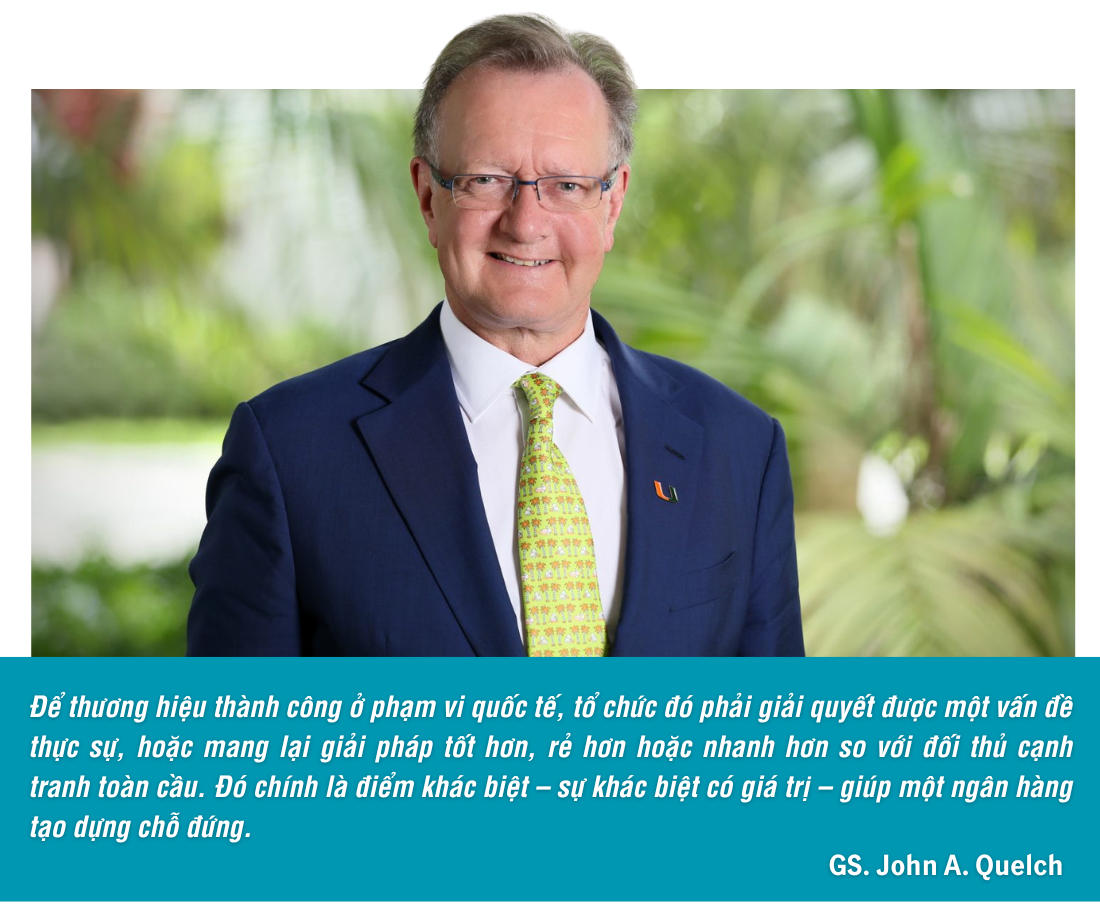 |
According to the Professor, what are the core elements that create a banking brand strong enough to expand globally? |
Thus, a bank that wants to expand regionally and internationally must build core competencies including: effective risk management, modern banking technology, standardized service quality, and most importantly, brand reputation based on transparency and trust. |
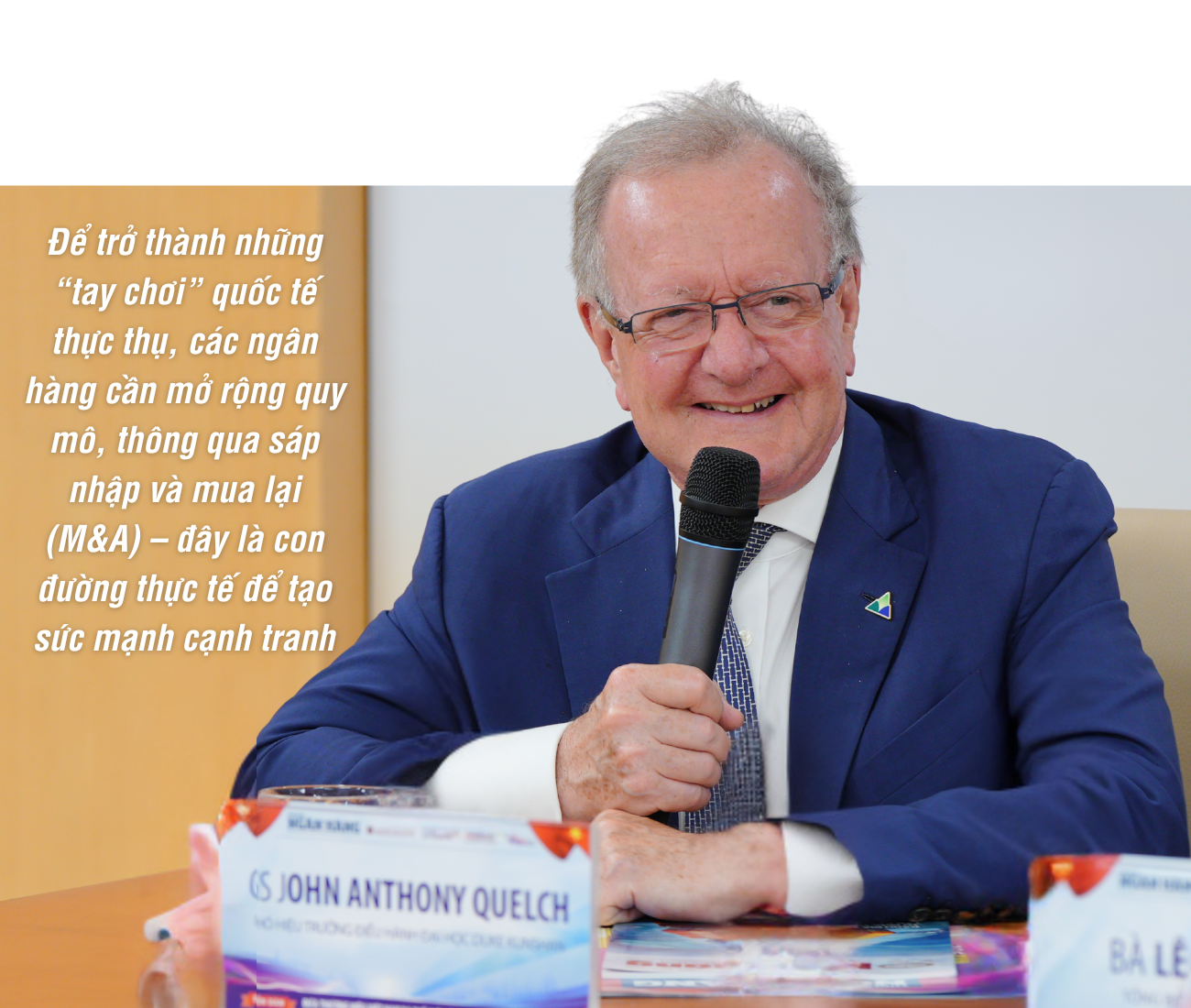 |
In the context that Vietnam is implementing the Credit Institution Restructuring Project, according to the Professor, is the goal of having 2-3 banks in the Top 100 Asia and 1-2 internationally listed banks feasible? I think it is entirely possible, especially if the Vietnamese economy maintains a high growth rate, and cross-border trade continues to expand. However, to achieve that stature - to become truly international "players", banks need to expand their scale, through mergers and acquisitions (M&A) - this is the practical way to create competitive strength. In addition, international listing is also an important step, not only to raise capital but also to increase transparency and standardize governance. But it is also important to note that if the stock is not highly liquid, listing will not bring much real value. Also regarding the above goal, could the Professor share his views on what the Government and the State Bank can do to help potential banks rise up and enter the Top 100 regions? I think the government has recently loosened restrictions on foreign investment, and that, I think, could be very helpful – as with the Japanese banks that are investing in Vietnamese banks now – they may want to expand their investment holdings given the strength and potential of the Vietnamese economy. So facilitating the attraction of more private capital for expansion is one of the important tools that the government can use. But the second factor, which is even more important, is the factor of trust. No one wants to cooperate with a Vietnamese bank if they do not trust Vietnam. Therefore, it is very important that the Vietnamese Government is internationally recognized as a trustworthy partner. This will create the necessary “umbrella” for businesses to easily promote international cooperation and expand abroad. You know, I think Korea is a great example in Asia – of course Korea is a more developed economy than Vietnam – but the way the Koreans have managed their country's global brand, as well as their individual company's brand, is really a model to learn from. What role does brand positioning play in enhancing the competitiveness and sustainable development of Vietnamese banks ? Brand positioning is the heart of marketing strategy. Vietnamese banks are currently operating in a fairly competitive domestic market, so they have a certain understanding of domestic brand positioning. However, when expanding internationally, the level of competition will be fiercer, requiring a sharper and more differentiated positioning. Brand positioning requires three elements: (i) Clearly defining the target market; (ii) Identifying a point of difference that is truly valuable to target market customers; (iii) Providing a compelling reason for them to believe in that superior commitment. According to the Professor, what are the biggest challenges that Vietnamese banks will face when wanting to build international brands in the current unstable context? The current environment is challenging for new players. One of the biggest barriers is the lack of trust from international markets. In a volatile environment, investors tend to be reluctant to take risks, and emerging banking brands are often judged to lack the track record to build trust. Therefore, trust and reliability are vital factors - and they must be built sustainably. To succeed, Vietnamese banks must demonstrate their reliability, risk management capabilities, and compliance with international standards. This requires serious investment in people, systems, and transparent management strategies. And as I just mentioned, international expansion is often easier when times are good, rather than when times are tough. So in the current context, my advice is that in addition to clearly identifying specific target markets as I mentioned above, each bank should focus more precisely on identifying what products or services they can offer that are really attractive to people and businesses in those target markets. Because if you can’t demonstrate the fit, and if you can’t provide a clear reason why an individual or business customer should switch from their current bank to a Vietnamese bank, there’s no strong enough incentive for them to choose you. You also shouldn’t try to “buy” market share by taking unreasonable risks. That will not only get you into trouble internationally, but it could also have domestic consequences for your current shareholders, right? |
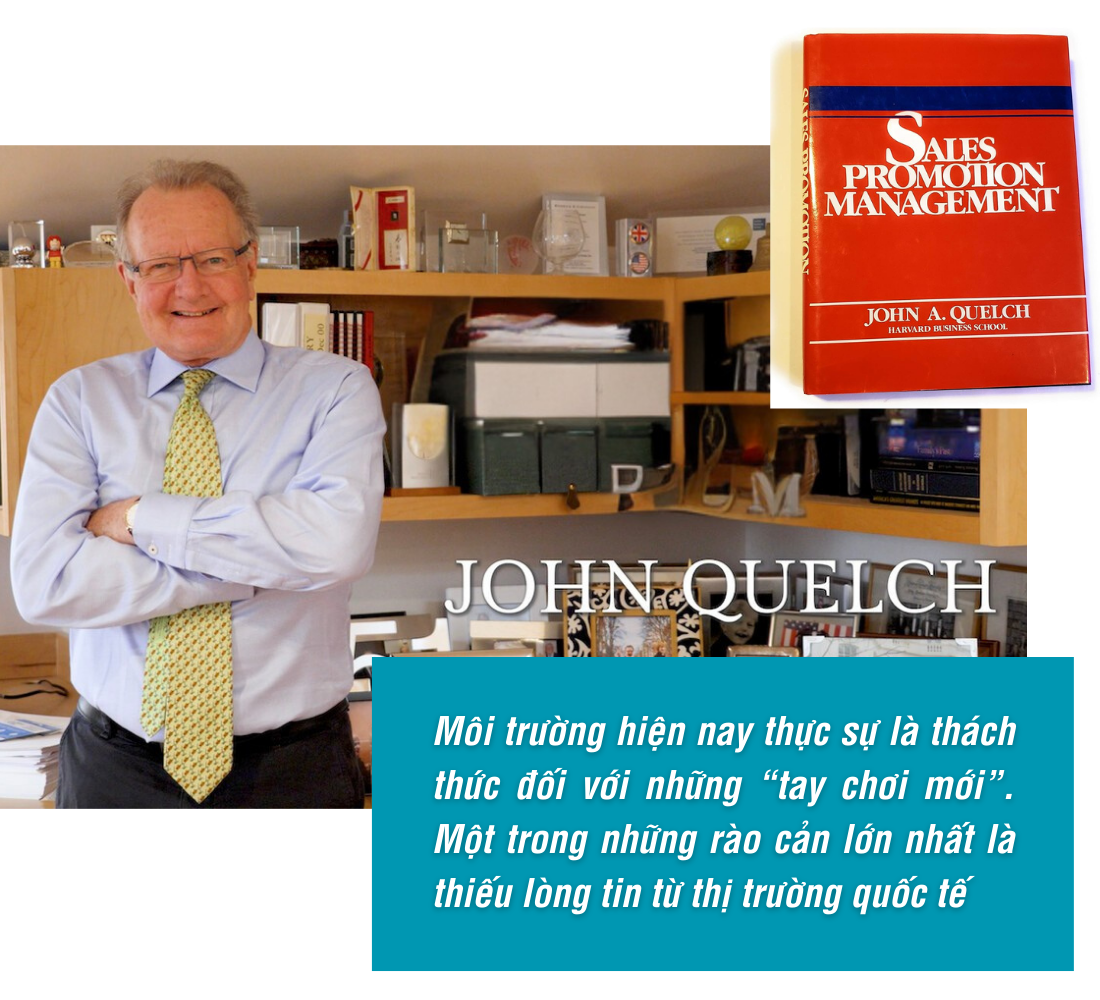 |
What can Vietnam learn from successful banking brand positioning models around the world, Professor? A classic example is HSBC, which positions itself as “The world's local bank”. This means that in any country HSBC operates in, they can provide “local knowledge” to international clients who want to do business in that country. At the same time, for domestic clients who want to expand into international markets, HSBC can provide “global knowledge”. It is this combination of “local” and “global” that creates a unique position. For Vietnamese banks, they can learn from this spirit to become a financial bridge, for example between the Vietnamese market and overseas Vietnamese communities, or between ASEAN and East Asia. What advice do you have for Vietnamese bank leaders in building a brand that is both appropriate to domestic culture and society and attractive to international investors and customers? Perhaps a sensible strategy would be to start by establishing separate international business units or building dedicated account management teams to serve corporate clients with international needs. This would allow banks to maintain operational agility while testing global business models on a smaller, less risky scale. However, as banks reach greater scale and global ambitions such as those of HSBC they need to develop a common corporate culture that transcends national boundaries. As I have emphasized, “a strong brand is a promise”, and for that promise to be trusted across different markets, the organizational culture must act as the “glue” to ensure consistency in service, ethics, and customer experience. This is the foundation for building long-term trust – a vital element for any bank that wants to conquer the international market. Finally, what is the reason that made the Professor accept to become a Senior Advisor to Banking Magazine? Is it because the Professor wants to share the aspiration to help bring world knowledge to Vietnam, and at the same time bring Vietnamese knowledge to the world? The Vietnamese economy has performed very well over the past two or three years, with strong GDP growth and high levels of foreign direct investment compared to other emerging economies. It is therefore important that the banking sector maintains this momentum to continue to realise Vietnam’s economic potential. Therefore, having the opportunity to serve in this role and bring a small part of knowledge from international experience to help the Vietnamese banking industry continue to develop professionalism and improve the management system is very meaningful. I think this is the right time to support Vietnam. Thank you, Professor! |
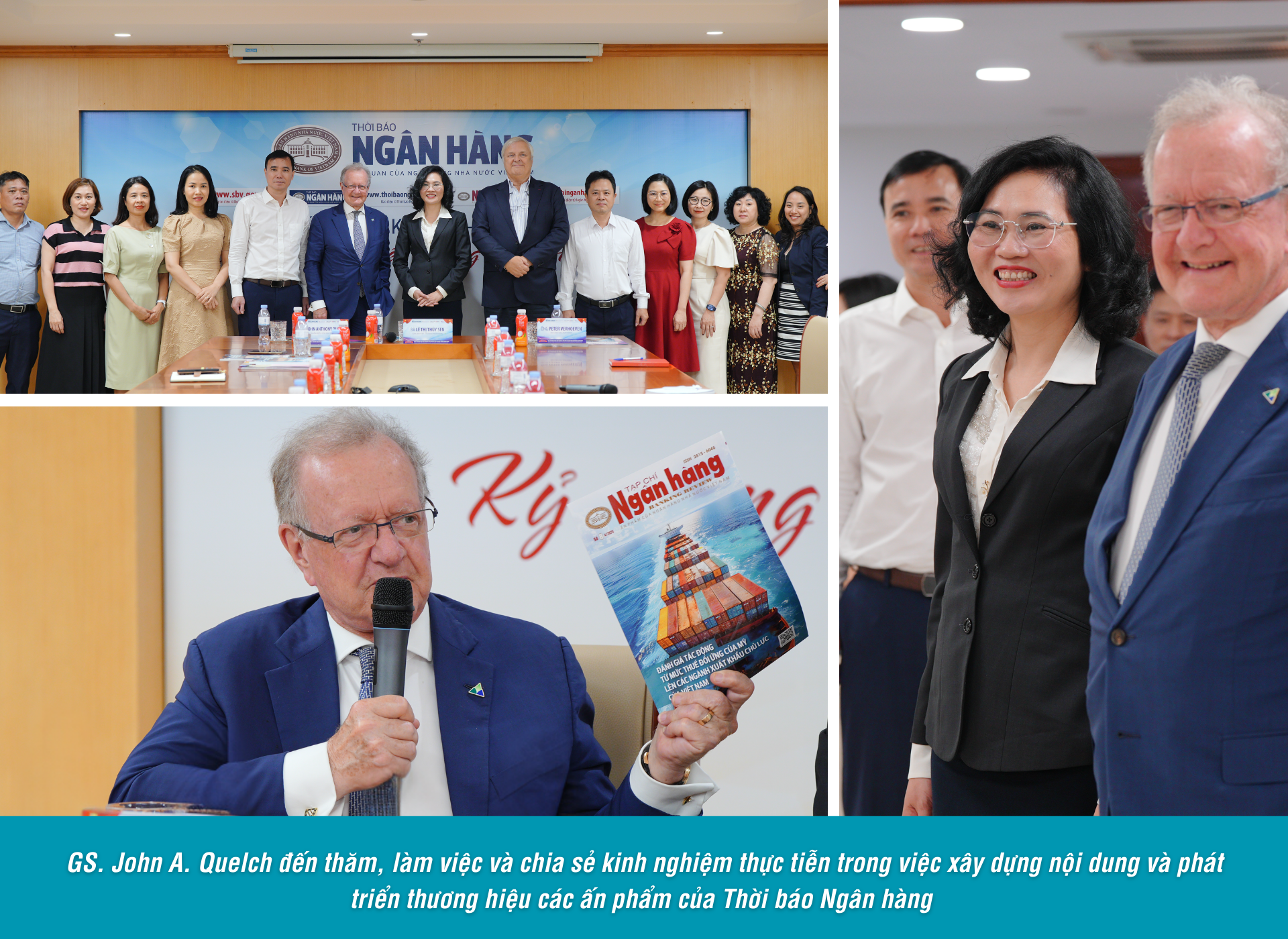 |
Do Le Presented by: Le Thanh |
Source: https://thoibaonganhang.vn/gs-john-a-quelch-khuyen-nghi-nhung-yeu-to-cot-loi-de-ngan-hang-viet-vuon-ra-toan-cau-163719.html






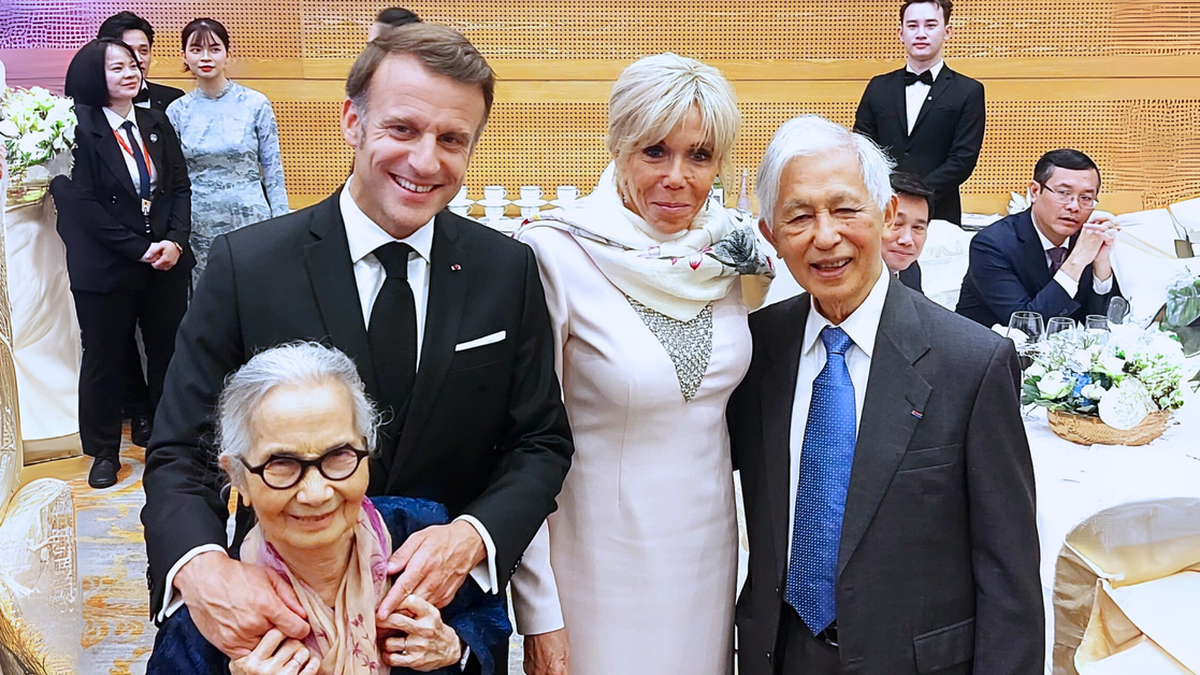
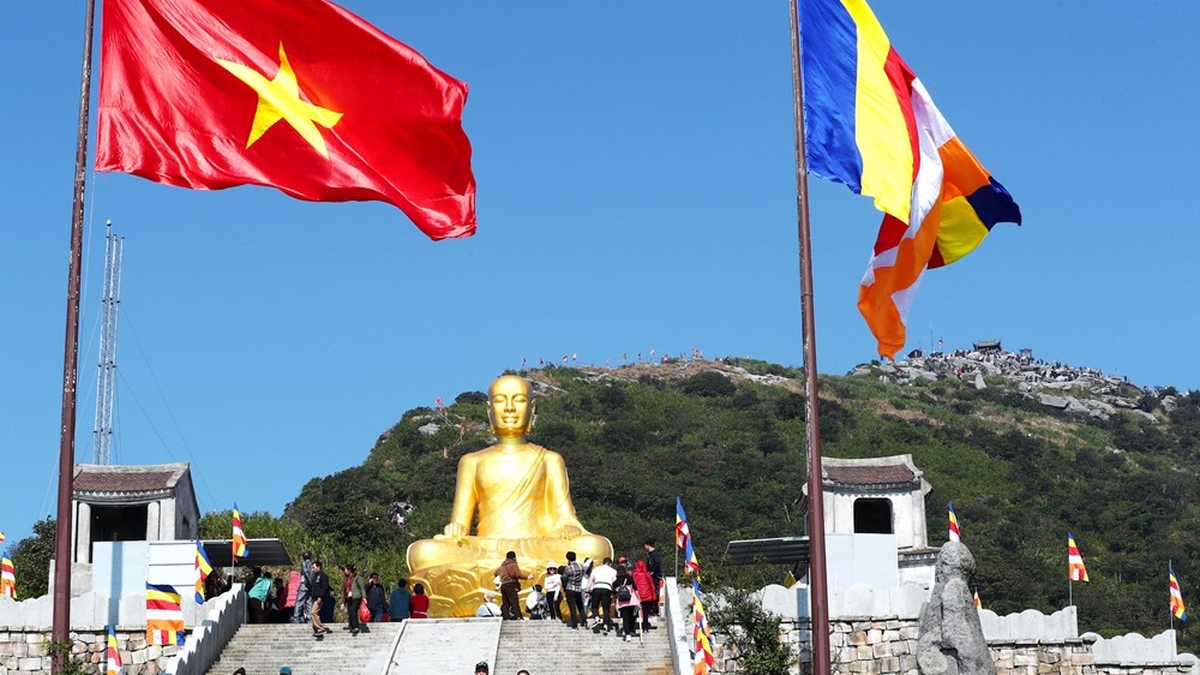


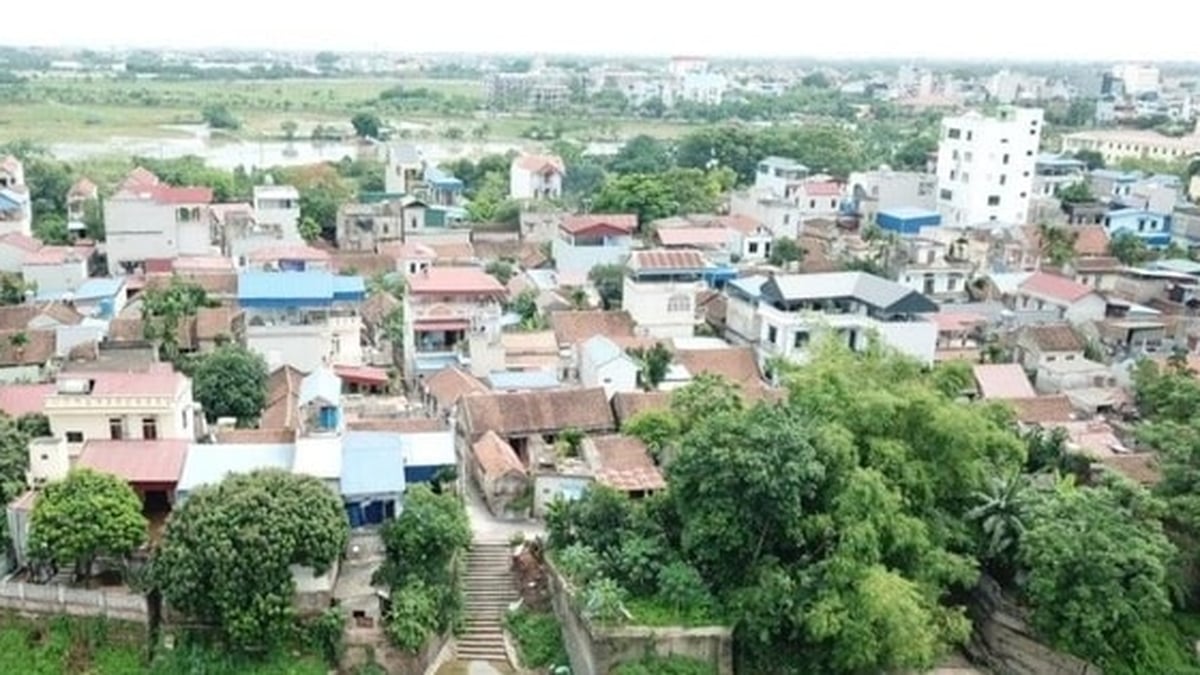













































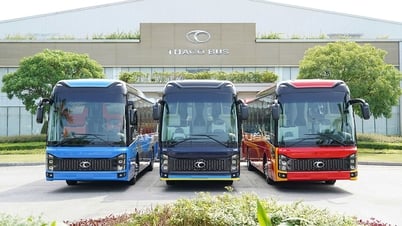


![[Maritime News] Treasury Department Targets Diverse Networks Facilitating Iran's Oil Trade](https://vphoto.vietnam.vn/thumb/402x226/vietnam/resource/IMAGE/2025/7/14/43150a0498234eeb8b127905d27f00b6)





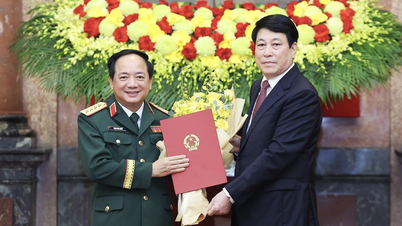


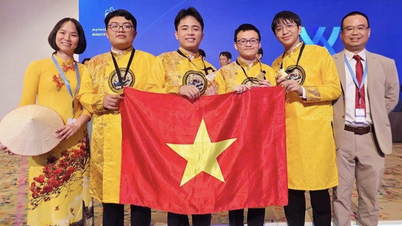

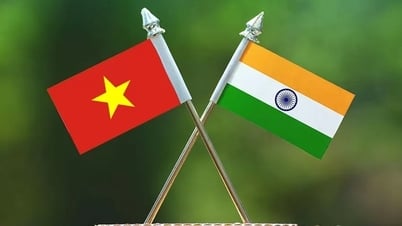

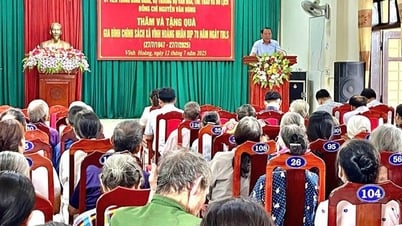



























Comment (0)